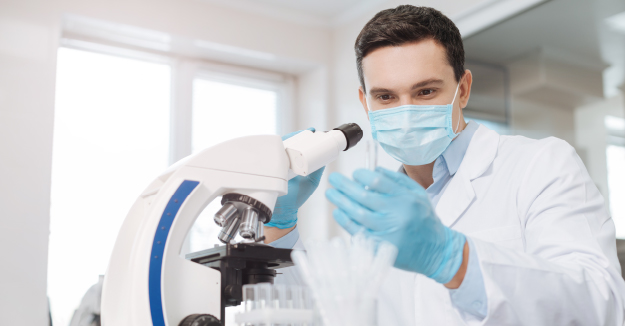Reasons for Prenatal DNA Testing
Prenatal DNA testing can be used to determine many things. However, the primary reasons to test while you’re pregnant, as opposed to waiting until after the baby is born, include determining child paternity and testing for a variety of genetic risk factors.
Determine Paternity
When there is more than one potential father involved in a pregnancy, determining an unborn child’s paternity is essential to the emotional and physical health and financial security of both the mother and the unborn child in question. Additionally, a DNA paternity test gives the biological father the opportunity to be involved in their child’s life and to foster a healthy relationship between father and child.
Lastly, in instances where the court of law is involved, the certified result of non-invasive prenatal testing establishes the legal and social benefits a child is entitled to, including any social security, veterans, and inheritance benefits they may be entitled to.
Determining a child’s father is the most common reason for paternity testing while pregnant; because it is so common, women wishing to take said tests should not feel embarrassed or socially prohibited from finding the answers they need.
Genetic Markers and Risk Factors
Mothers may also opt to undergo a DNA test to test for genetic markers, risk factors, or abnormalities in their unborn infant. Prenatal DNA testing can detect a child’s predisposition towards cardiovascular issues, hereditary cancer genes, Alzheimers, diabetes and obesity, hearing loss, and more depending on the test in question.
Determining these genetic markers and risk factors can help parents make informed decisions on caring for their child in the future or on how to approach their pregnancy.
Cost of Prenatal Testing
The cost of prenatal DNA testing depends largely on what is being tested and how in-depth the test will be. Prices can range anywhere from $400.00 to $2000.00. Testing during pregnancy is often more expensive than waiting until after a child is born. This is because testing during pregnancy requires more advanced technology to separate the mother’s DNA from the child’s.
In some instances, costs will be lower for tests that are court-approved, as opposed to “curiosity testing.” The good news is that some testing centers offer payment plans; however, they will often require full payment before releasing the results.

When Can You Get a Prenatal DNA Test?
The option to perform a DNA test is available as early as the end of a pregnany’s first trimester, beginning any time after the 8th or 10th week depending on the procedure in question.
How is Prenatal DNA Testing Done
How your prenatal DNA test will be conducted depends heavily on the nature of the test in question. Below, we’ve broken down the details of three types of prenatal testing.
Non-Invasive Prenatal Paternity Test (NIPP)
A non-invasive prenatal paternity test is the most accurate and safest way to determine the identity of a child’s biological father before it is born. This test extracts information about an infant’s DNA from the mother’s bloodstream and, as such, only requires a small blood sample.
Because this test only requires drawing the mother’s blood, it is considered completely safe for both mother and unborn child while boasting an accuracy rating of 99.9%.
Amniocentesis
This test is performed in the second trimester and uses amniotic fluid to determine if your child has a genetic or chromosomal condition; this can include but is not limited to conditions like Down’s syndrome, Edward’s syndrome, and Patu’s syndrome.
With the guidance of an ultrasound, a doctor will insert a thin needle into the uterus to extract the amniotic fluid, which will then be tested. Because Amniocentesis presents a small chance of harming the baby or causing miscarriage, a doctor’s consent is required to undergo this procedure. Other potential side effects of undergoing this test include vaginal bleeding, cramping, a leaking of amniotic fluid, and irritation at the site of injection.
Chorionic Villus Sampling (CVS)
CVS, which can be performed by the 10th or 13th week of pregnancy, also tests for the presence of genetic or chromosomal conditions, like the ones listed above. However, the test is performed differently because the DNA is being extracted from a different source.
Chorionic villi are small pieces of tissue attached to the uterine wall; they have the same genetic makeup as the fertilized egg present in the mother’s womb. In order to gather the tissue sample needed for the DNA test, a doctor will insert a small needle or tube through the cervix. This procedure involves a low chance of miscarriage and uterine infection and, as such, requires a doctor’s consent to be performed.

Is Prenatal DNA Testing Dangerous?
In general, the American Pregnancy Association recommends waiting until after the birth of your child to perform any DNA testing whenever possible. Tests performed after the child’s birth pose a substantially lower risk and can be as simple as using a cheek swab.
That being said, if waiting until after a child is born is not an option, the safety risks involved in prenatal DNA testing depend heavily on the test being performed. Before electing to undergo any tests, speak with your primary care physician and obstetrician about whether or not you and your infant can undergo any form of prenatal testing safely.
Get Genetic Prenatal DNA Tests at OnPoint Lab
OnPoint Lab is proud to offer comprehensive DNA genetic testing for all members of the Greater Houston community. Visit our website to learn more about our testing services or call 832-939- 3521 now to schedule an appointment.


